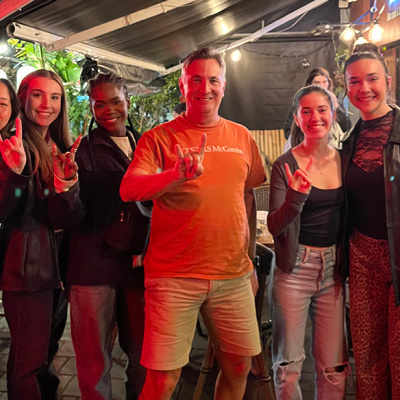'The Atlantic' Recognizes Former Texas Exes Scholar's Work With Teach For America

Education nonprofit Teach for America takes college graduates and places them at the front of classrooms in low-income schools.
With little to no training prior to their acceptance into the program, many of these teachers improve students test scores by more than one and a half grade-levels. Others have trouble keeping the students up to par.
What makes one teacher more successful than another? Teach for America has wondered this since its inception in 1990 and has studied it, continually re-evaluating its methods of selection and preparation.
The Atlantic wondered the same thing recently, and delving into Teach for America's results, wrote in their January/February 2010 issue, "What Makes a Great Teacher?"
Former Texas Exes scholar Steven Farr, BA '93, spent two years after graduating as a Teach for America teacher at a high school in the Rio Grande Valley. Just 76 percent of his students passed the end-of-year state testing required for graduation. He told The Atlantic that most of the students were sophomores with time to retake the test, but some dropped out anyway. And while the principal congratulated him on his success, Farr went home that night and cried.
Farr went on to law school at Yale and today is back at Teach for America as chief knowledge officer. The Atlantic's story highlights the results of Farr's work studying what separates the teachers who see phenomenal improvement in students and those who see little to none. His findings are in his forthcoming book, Teaching as Leadership.
One thing is clear in recent education research, The Atlantic says: "More than any other variable in education — more than schools or curriculum — teachers matter." And Farr is out to be sure that even low-income students have outstanding teachers.






